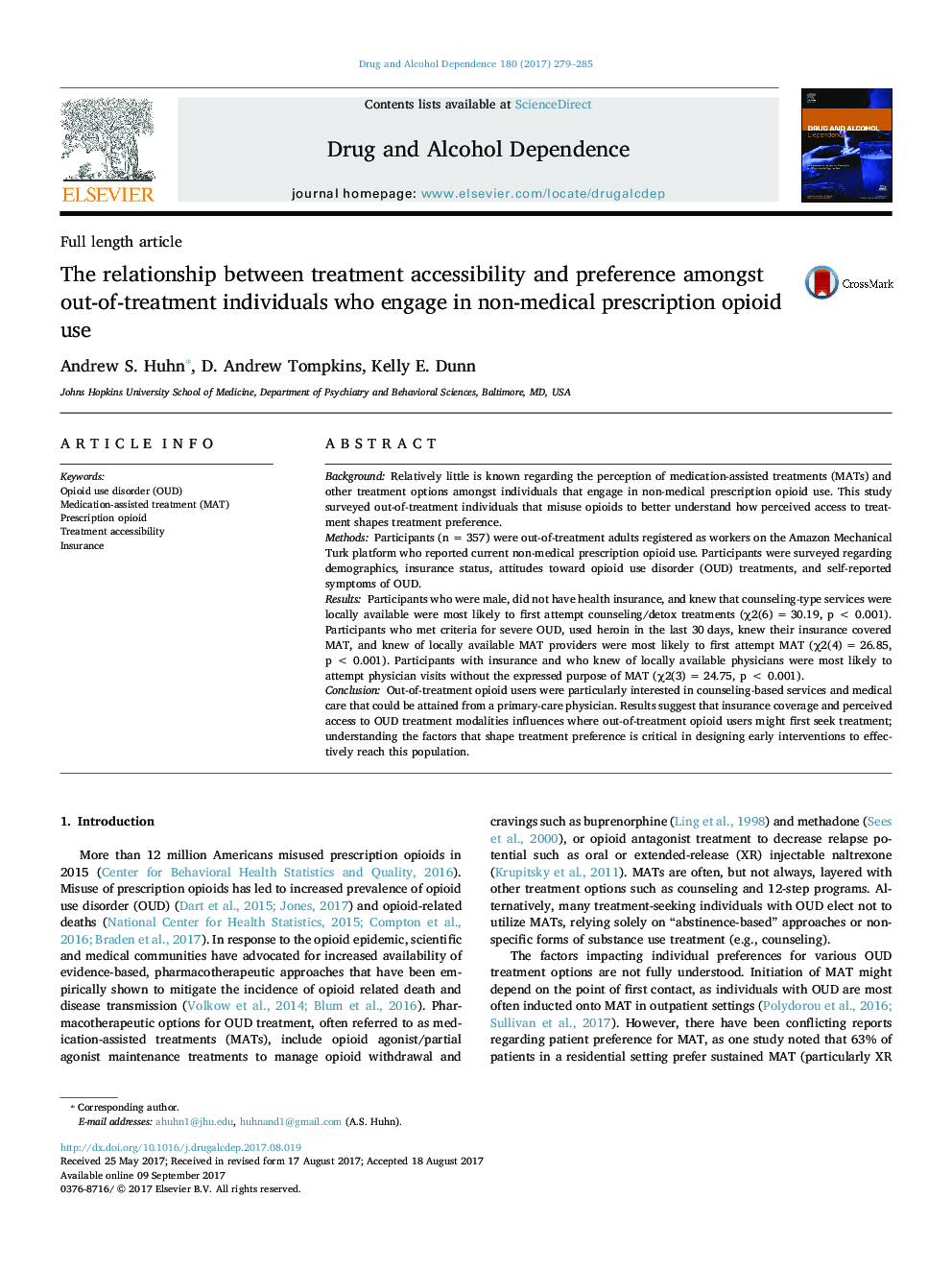| Article ID | Journal | Published Year | Pages | File Type |
|---|---|---|---|---|
| 5119866 | Drug and Alcohol Dependence | 2017 | 7 Pages |
â¢Several factors shape individual preference for treatment of opioid use disorder.â¢Access to treatment is predictive of initial treatment attempt in opioid users.â¢Opioid users are more likely to utilize medical care if they have insurance.â¢Opioid users in rural areas report less availability of methadone and naltrexone.â¢Interest in pharmacotherapies is associated with severe opioid use disorder.
BackgroundRelatively little is known regarding the perception of medication-assisted treatments (MATs) and other treatment options amongst individuals that engage in non-medical prescription opioid use. This study surveyed out-of-treatment individuals that misuse opioids to better understand how perceived access to treatment shapes treatment preference.MethodsParticipants (n = 357) were out-of-treatment adults registered as workers on the Amazon Mechanical Turk platform who reported current non-medical prescription opioid use. Participants were surveyed regarding demographics, insurance status, attitudes toward opioid use disorder (OUD) treatments, and self-reported symptoms of OUD.ResultsParticipants who were male, did not have health insurance, and knew that counseling-type services were locally available were most likely to first attempt counseling/detox treatments (Ï2(6) = 30.19, p < 0.001). Participants who met criteria for severe OUD, used heroin in the last 30 days, knew their insurance covered MAT, and knew of locally available MAT providers were most likely to first attempt MAT (Ï2(4) = 26.85, p < 0.001). Participants with insurance and who knew of locally available physicians were most likely to attempt physician visits without the expressed purpose of MAT (Ï2(3) = 24.75, p < 0.001).ConclusionOut-of-treatment opioid users were particularly interested in counseling-based services and medical care that could be attained from a primary-care physician. Results suggest that insurance coverage and perceived access to OUD treatment modalities influences where out-of-treatment opioid users might first seek treatment; understanding the factors that shape treatment preference is critical in designing early interventions to effectively reach this population.
